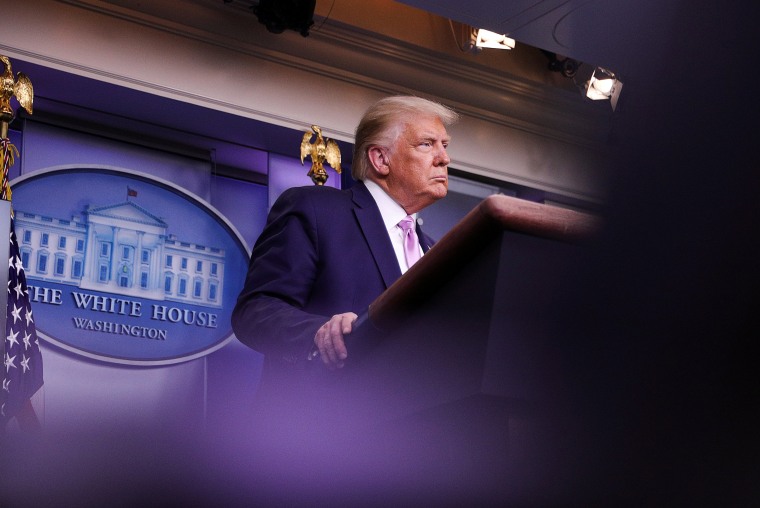WASHINGTON — President Donald Trump declined Wednesday to disavow the QAnon movement, saying that the followers of the extreme conspiracy theory oppose violent protests and that "I've heard these are people who love our country."
When reminded by a reporter for NBC News that the movement's followers believe he is fighting to stop a satanic cult of pedophiles and cannibals, he asked: "Is that supposed to be a bad thing?"
Trump said he didn't know much about the QAnon movement's followers, "other than I understand they like me very much, which I appreciate."
"But I don't know much about the movement," he said. "I have heard that it is gaining in popularity."
While QAnon has been seen as a fringe movement for years, researchers and experts say it has emerged in recent months as a sort of centralized hub for utterly false conspiracy and alternative health communities. The group has been linked to several violent, criminal incidents, including a train hijacking, kidnappings, a police chase and a murder.
When asked whether he supported the idea promoted by QAnon that he is secretly trying to save the world from a satanic cult of pedophiles and cannibals, Trump didn't knock down the idea.
"I haven't heard that. But is that supposed to be a bad thing or a good thing? If I can help save the world from problems, I'm willing to do it, and I'm willing to put myself out there," Trump said. "And we are, actually. We're saving the world from a radical left philosophy that will destroy this country. And when this country is gone, the rest of the world would follow."
Download the NBC News app for breaking news and politics
The theory has made its way into mainstream politics. Before running for office, Georgia Republican congressional candidate Marjorie Taylor Greene wrote dozens of articles, published on a now-defunct website favorable to the QAnon conspiracy theory, that suggested that Hillary Clinton murdered her political enemies, and she ruminated on whether mass shootings were orchestrated to dismantle the Second Amendment.
Facebook on Wednesday banned about 900 pages and groups and 1,500 ads tied to QAnon, part of a sweeping action that also restricted the reach of over 10,000 Instagram pages and almost 2,000 Facebook groups pushing the baseless conspiracy theory that has spawned real-world violence.

